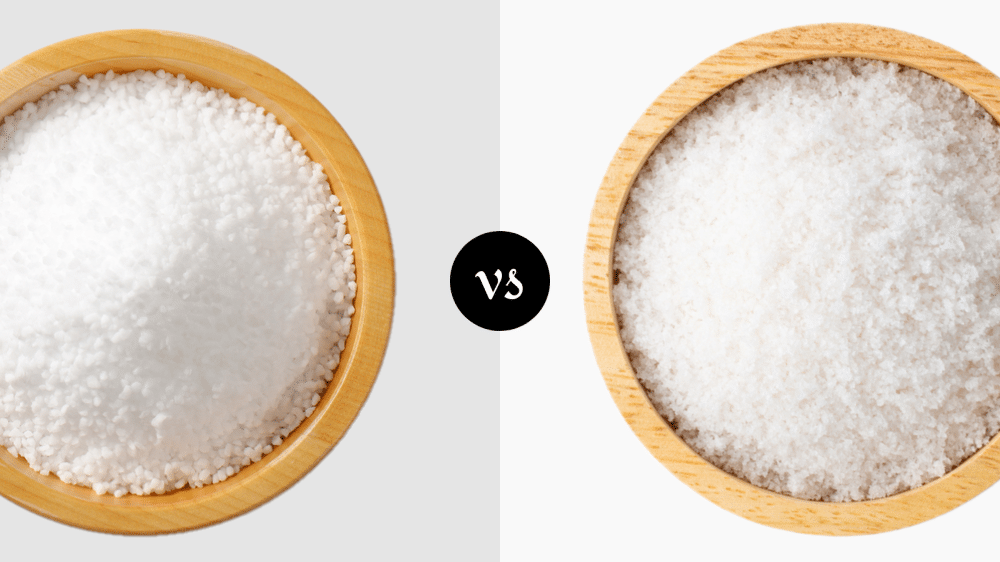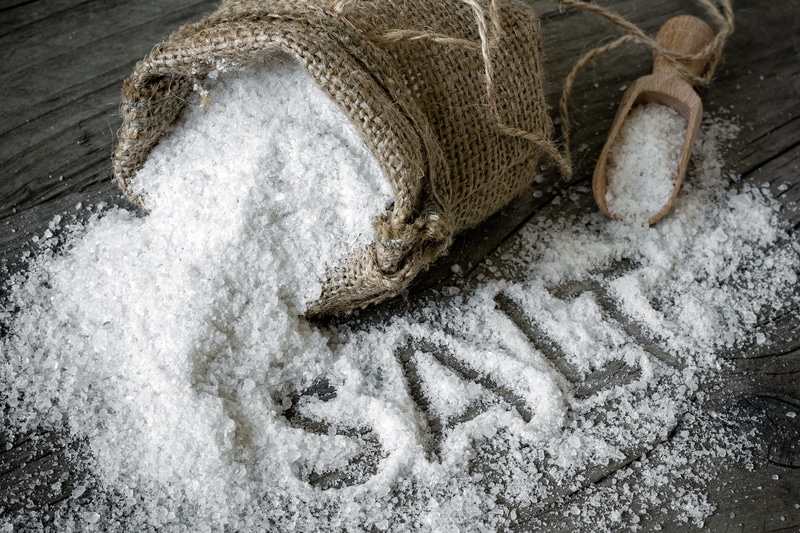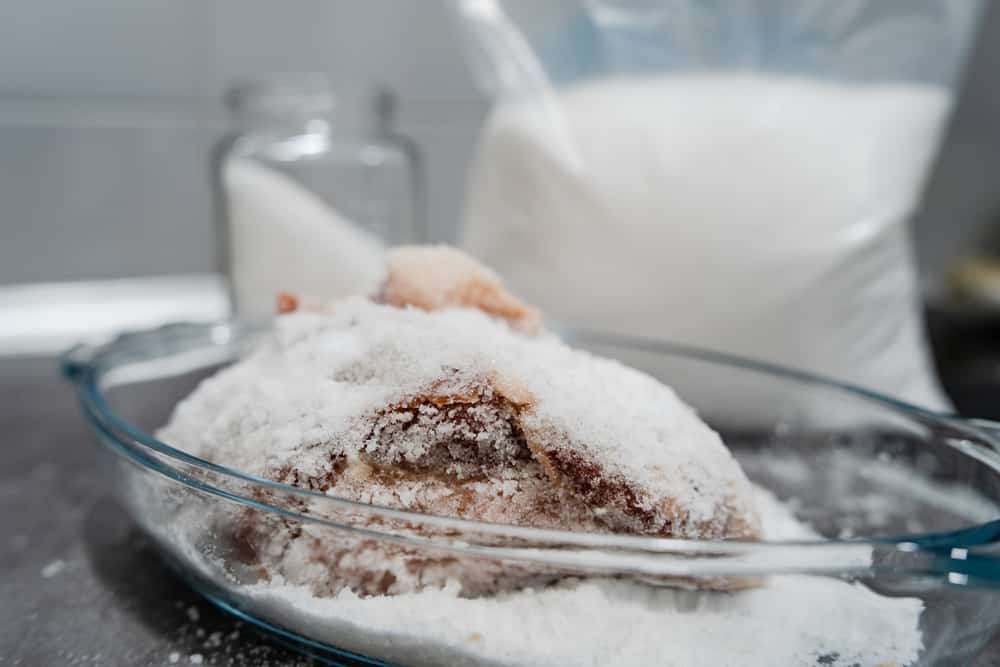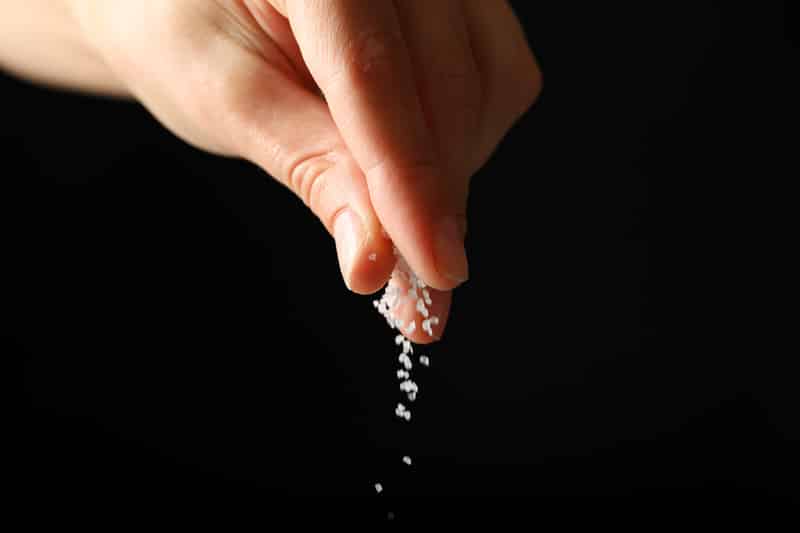
It’s common for people to think that all types of salt have the same flavor and can be interchanged. However, it’s not true because different types of salt have different sizes of granules, which changes the amount of salt required in a recipe.
So, if you have to use regular salt or kosher salt in place of each other, we are sharing the salt conversion measurements to make sure your food isn’t ruined.
Kosher Salt vs. Regular Salt Conversion
Kosher salt has a coarse and uniform texture, and its granules are easier to pinch. On the other hand, regular salt has small and coarse crystals.
Regular salt is denser than kosher salt, which is why it has a saltier flavor. For this reason, it’s important to measure the kosher salt and regular salt properly if you want to swap them with each other.
| Kosher Salt | Regular Salt |
| Not iodized | Iodized |
| Large coarse flakes | Finer flakes |
| Seasoning, brining, pickling | Seasoning, baking |
| Less salty compared to regular salt | Saltier than kosher salt |
Factors To Consider While Substituting Kosher Salt for Regular Salt
Below are a few things to keep in mind when substituting kosher salt for regular salt or vice versa.
Iodized or Not
Kosher salt is mined from salt deposits and has sodium chloride. So kosher salt isn’t iodized.
On the other hand, regular salt has anti-clumping agents as well as sodium chloride, which leads to a smooth texture. Also, regular salt is iodized. The iodized salt is healthier as it’s important for proper thyroid function, but it doesn’t have much flavor.
Texture
Kosher salt has large and coarse flakes, while regular salt has finer flakes.
Uses
Kosher salt is usually used for seasoning dishes before and after cooking or curing meat. In addition, many people use it for brining and pickling. In case you have to season meat, it’s better to use kosher salt before cooking.
When you use kosher salt, keep in mind that it doesn’t dissolve very quickly, which is why it shouldn’t be used in baking recipes.
On the other hand, regular salt is used for seasoning the food as well as for baking. However, it’s not suitable for pickling or brining. Regular salt has a saltier flavor as compared to kosher salt.
Substituting kosher salt and regular salt won’t impact the flavor, particularly in cooking, if you use the correct conversion.
Substituting Regular Salt for Kosher Salt for Pickling or Brining
Regular salt is used for seasoning the food as well as for baking. However, it’s not suitable for pickling or brining. Regular salt has a saltier flavor as compared to kosher salt.
This is because regular salt has smaller crystals, which means more crystals are added to the same measuring spoon as compared to kosher salt. Regular salt can be used for last-minute seasoning as well.
Does Swapping Kosher Salt & Regular Salt Change The Flavor?
If the salt dissolves into the food, you can use regular salt or kosher salt, whatever you have, as it doesn’t impact the flavor.
However, if the recipe has mentioned kosher salt and you have to use regular salt, use lesser salt because it’s denser, hence saltier.
If you have to season while cooking, it’s recommended that you use kosher salt as it has bigger crystals, making it easier to estimate how much seasoning you are adding.
The Bottom Line
On a concluding note, it’s possible to swap regular salt and kosher salt but always add less regular salt if the recipe calls for kosher salt.
This is because regular salt has a more intense flavor, which can overwhelm your food. In addition, always start by adding less salt because it will be too challenging to reduce saltiness.


